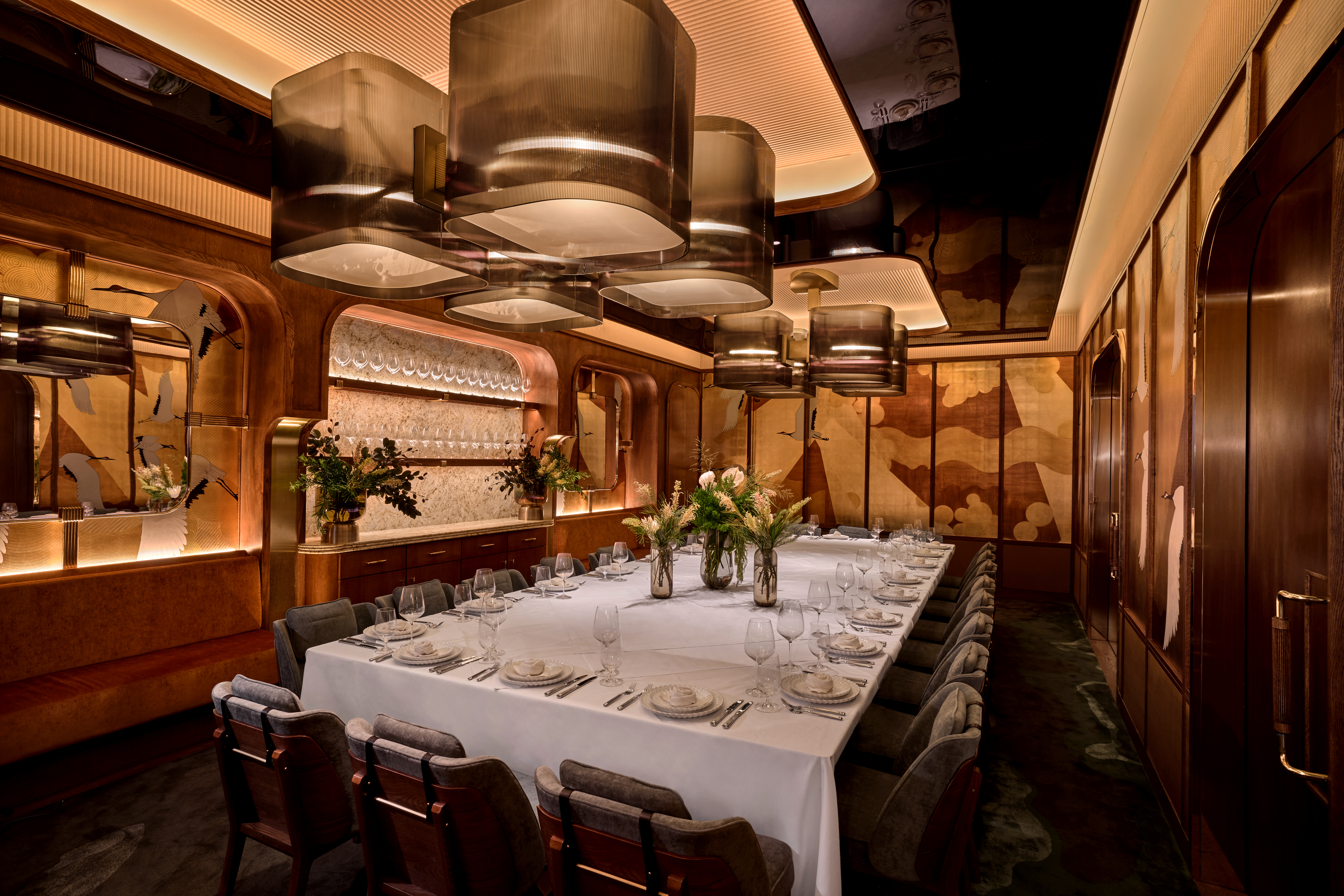
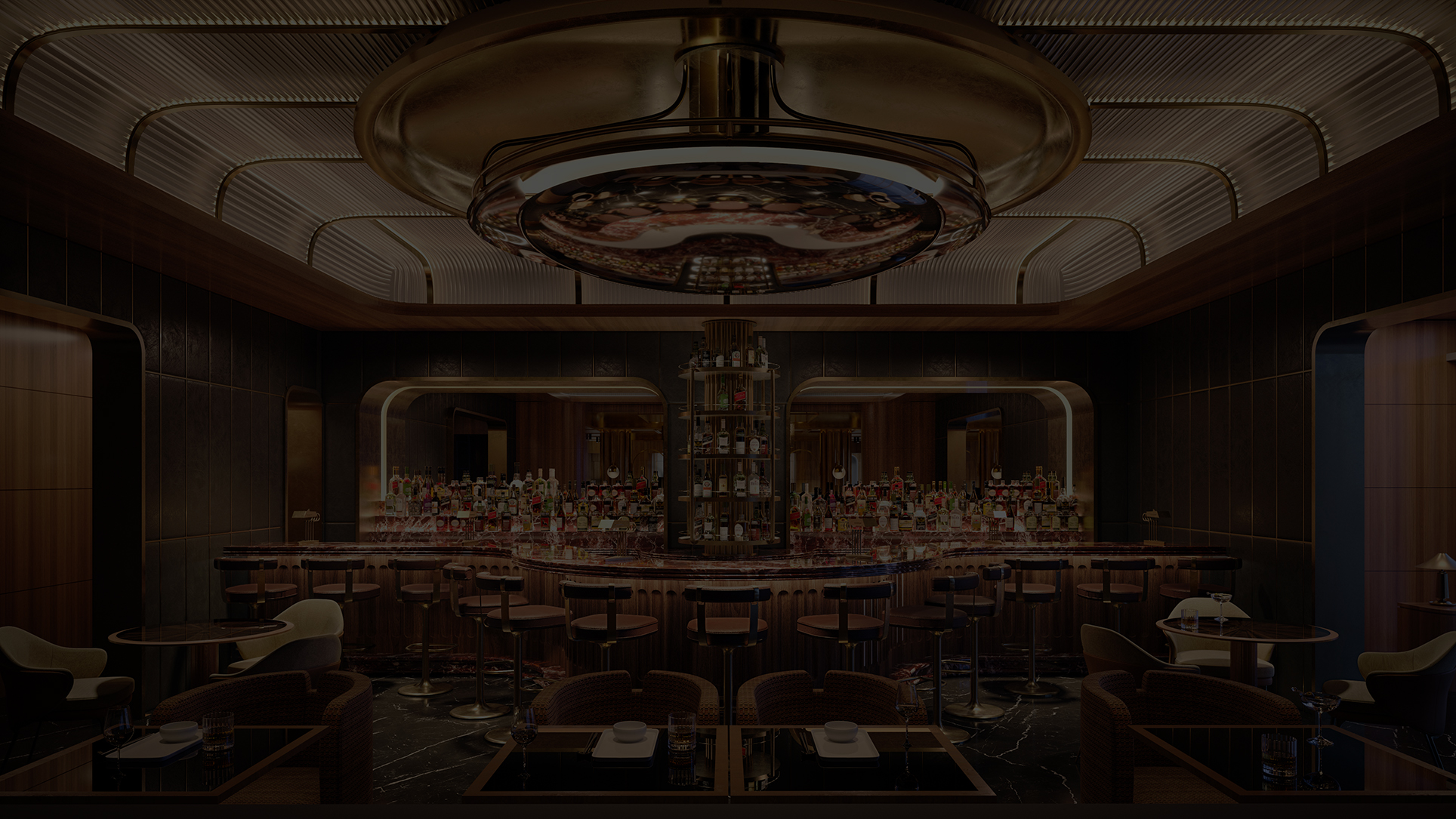
Our Story
The Concept
Nuri, meaning “whole world” in Korean, embodies our commitment to embracing diversity and sharing the beauty of cultural exchange through cuisines. Our menu is thoughtfully curated by a Michelin-recognized chef to honor the rich traditions of Asia, the soulful essence of New Orleans, and the comforting warmth of Southern traditions. We source the finest quality ingredients, ensuring that each dish is crafted with passion and precision.
Step into Nuri, where cultural boundaries dissolve, and food becomes a universal language. We believe that food is more than sustenance; it’s a celebration of life. Explore the world in every bite, and discover the harmony that brings flavors, traditions, and people together.
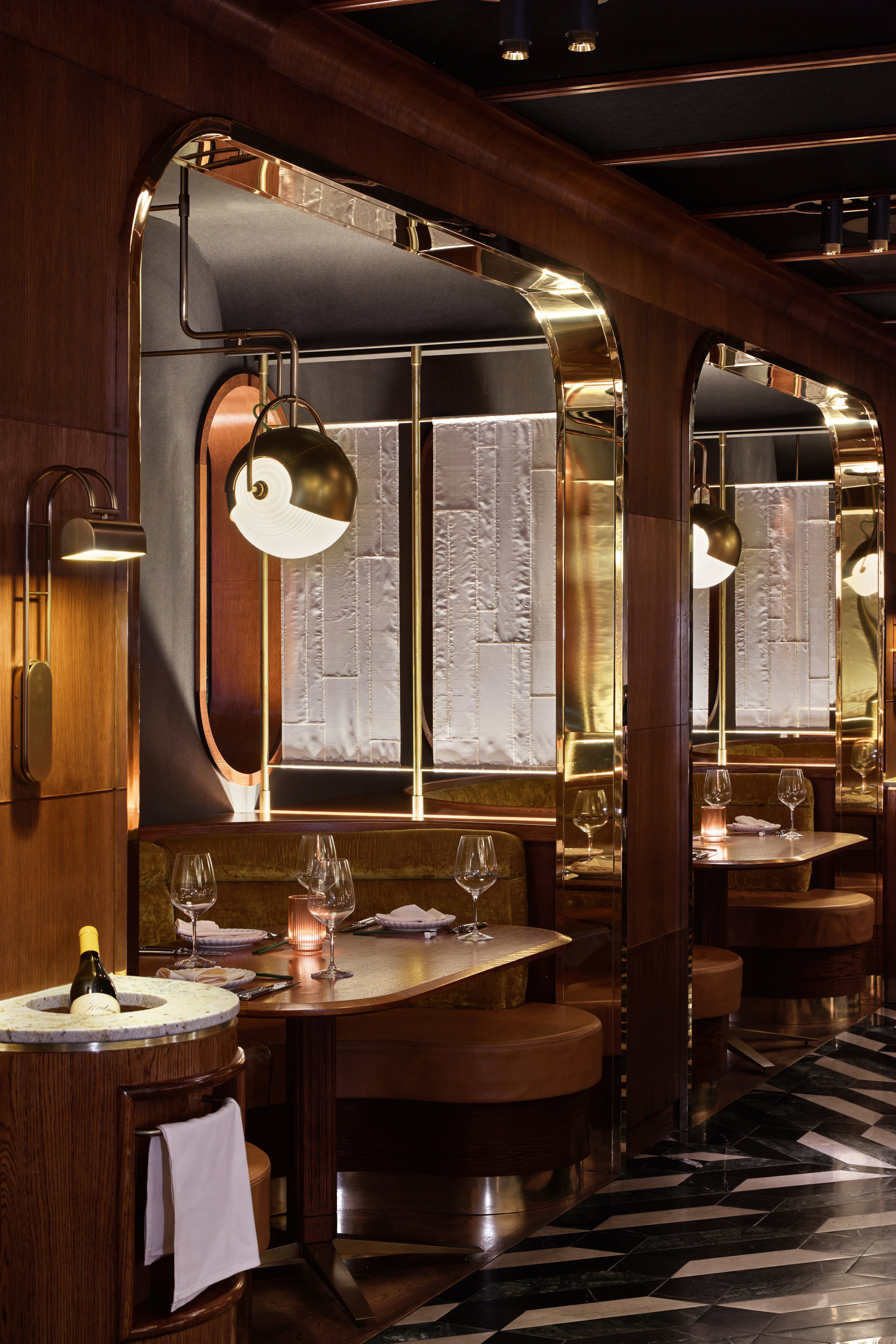
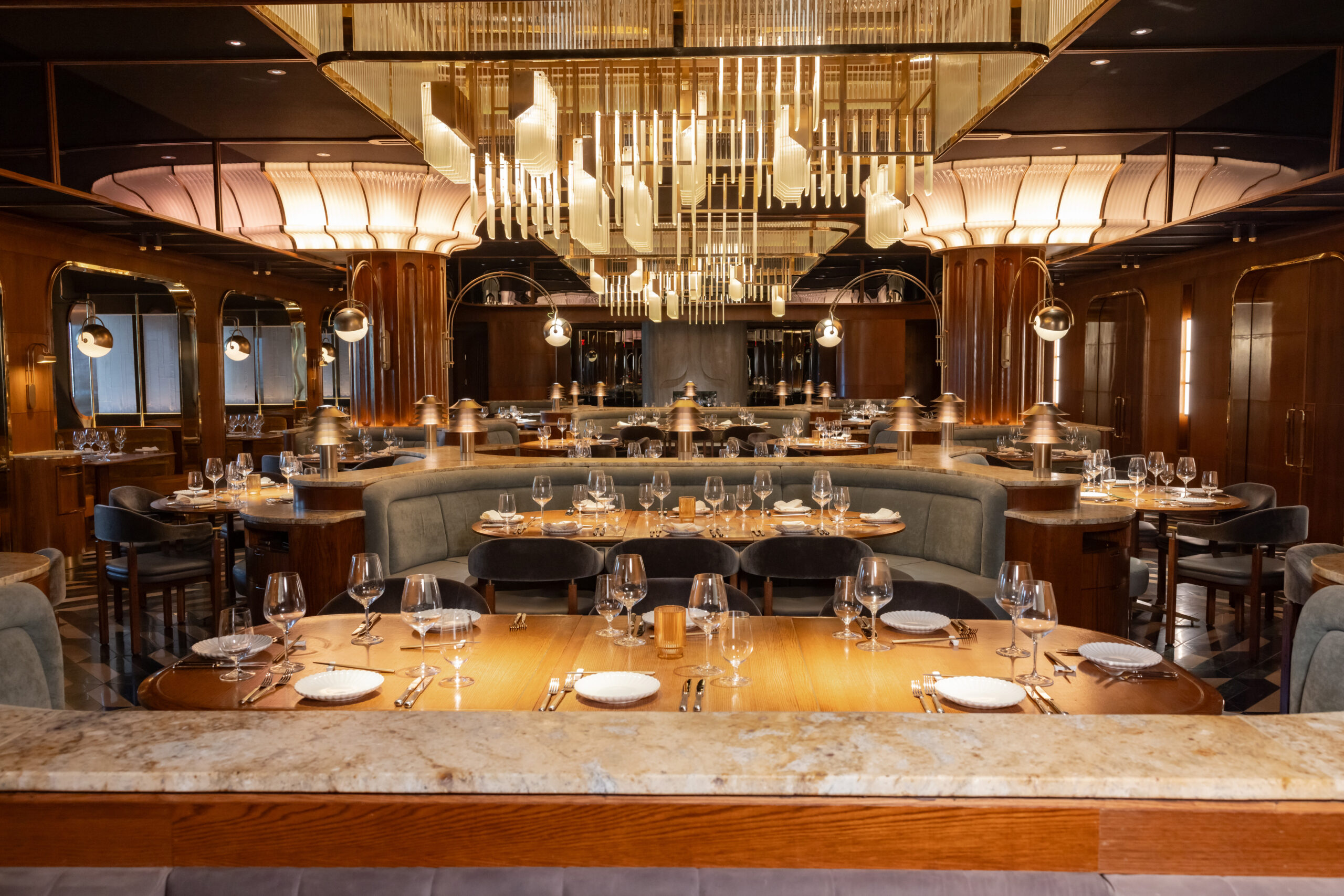
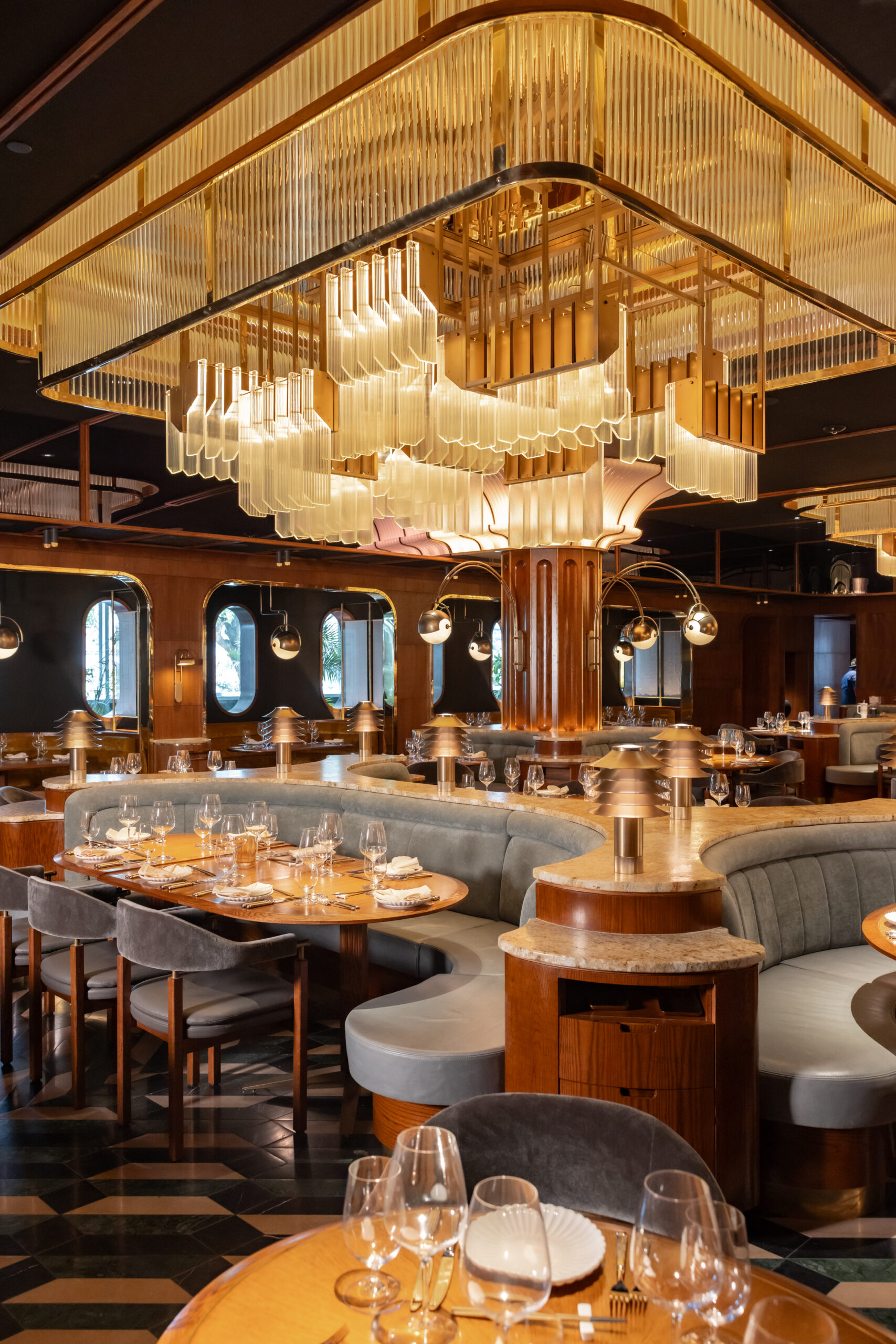
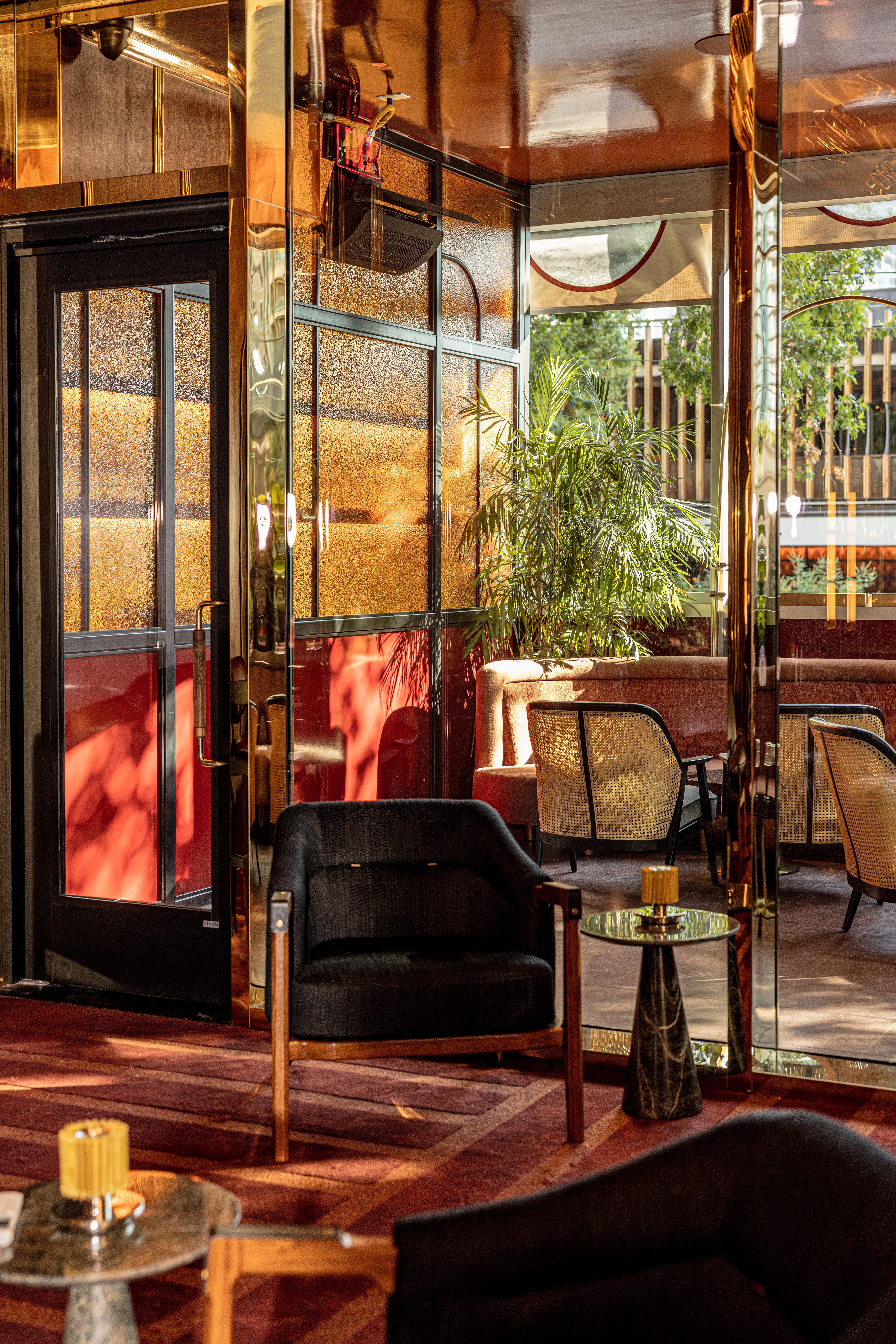
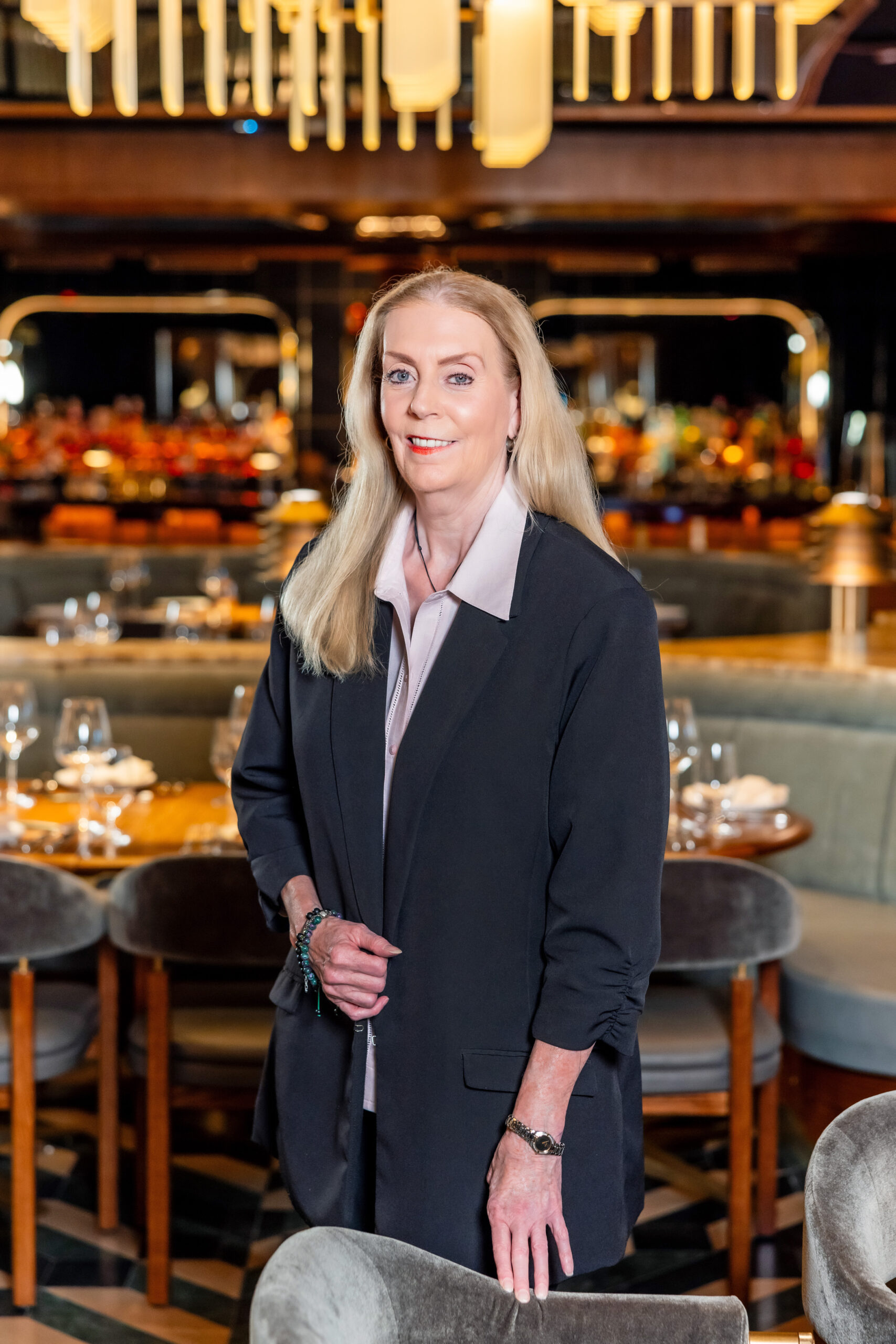
Master Sommelier, Barb Werley
ABOUT BARB WERLEY, MS
Design
Designed by the acclaimed AvroKO team, the lavish interiors of Nuri Steakhouse draw inspiration from the Art Deco era, featuring curvaceous forms, soft fabrics, and intricate details in wood, metals, and stones. Traditional Korean celadon ceramics influence the colors and textures throughout the space, adding a timeless elegance.
A bold cyberpunk aesthetic weaves in modernity, reflecting the digital gaming culture of Asia. Black cork and brass-paneled walls resemble circuit boards while enhancing acoustics, and reflective metal finishes nod to computer components. The bar’s glowing ceiling, crafted from a massive milk truck panel, adds industrial drama.
Stone floors, with circuit-inspired patterns, lead to a jade-like stone fireplace. In the private dining room and member’s lounge, de Gournay hand-painted wall coverings blend Asian textures with Korean influences, creating an atmosphere that is both sophisticated and visually captivating.
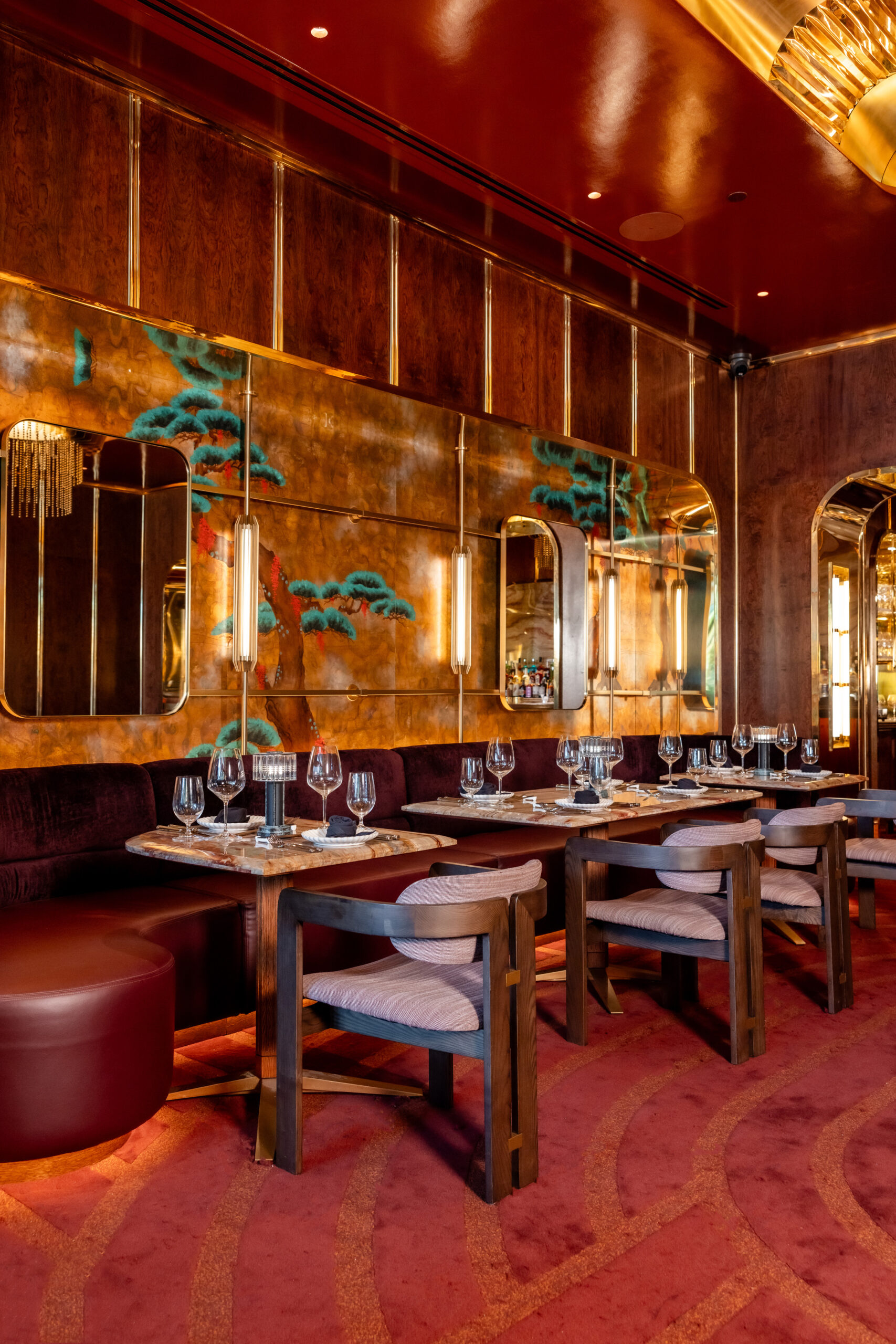
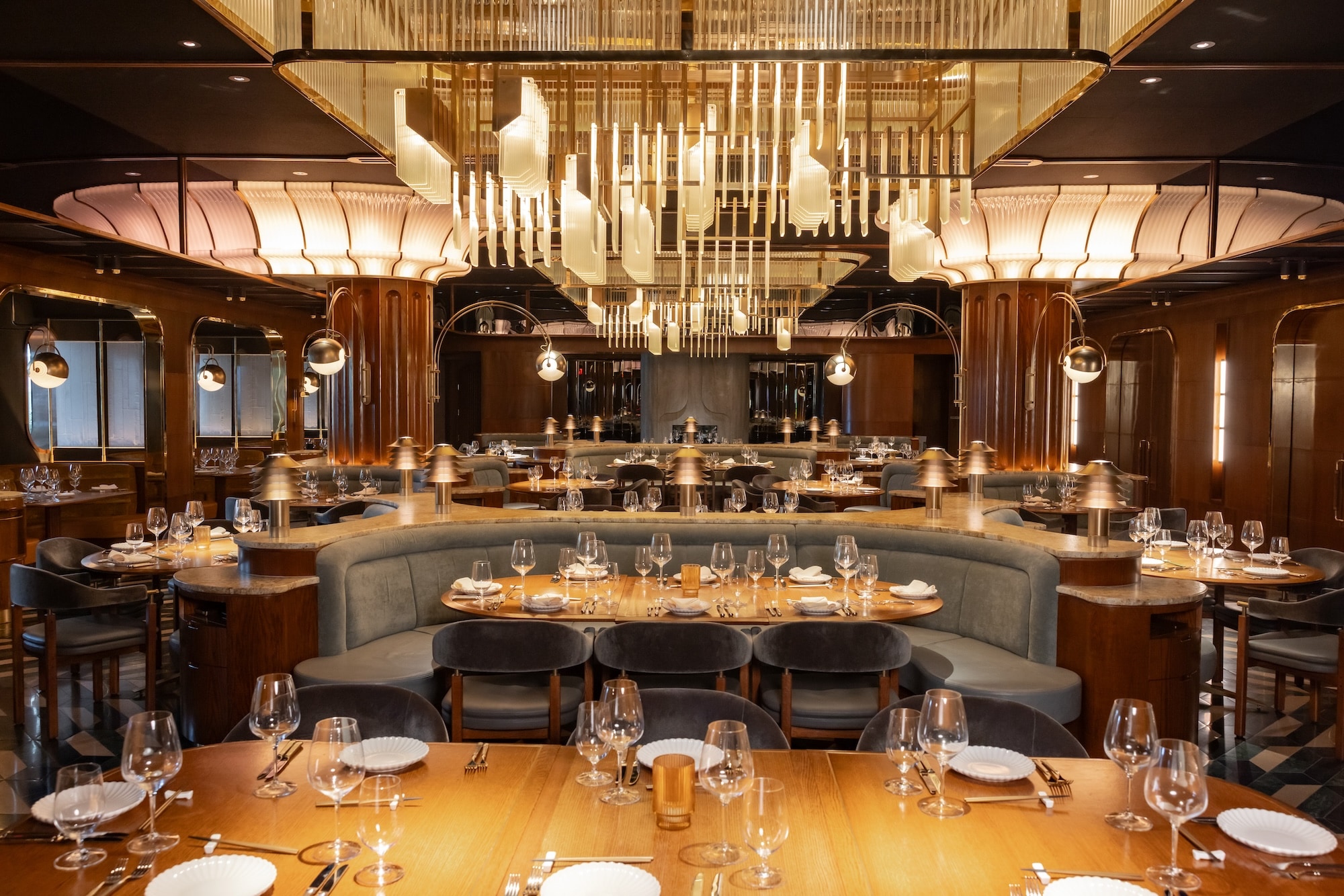
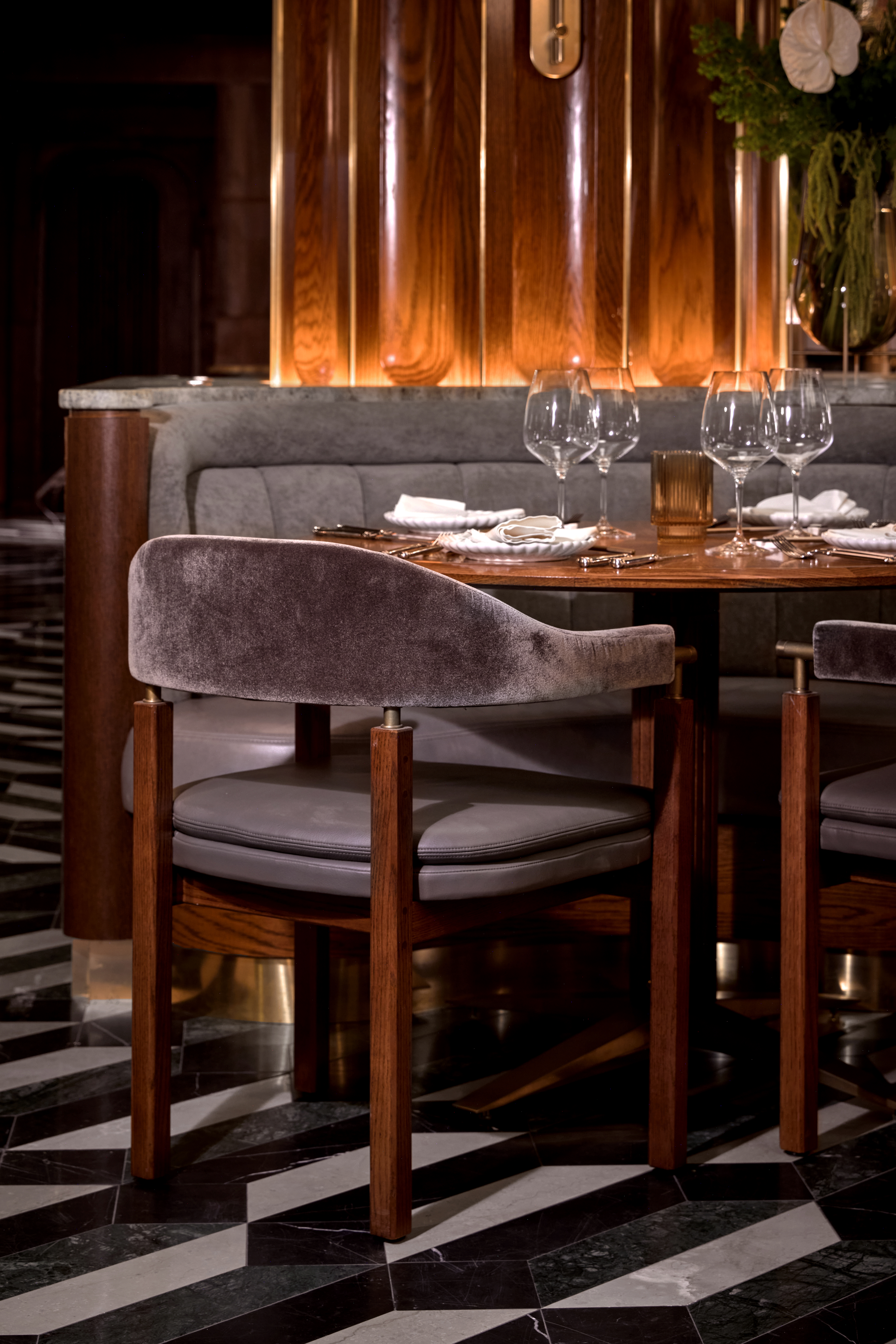
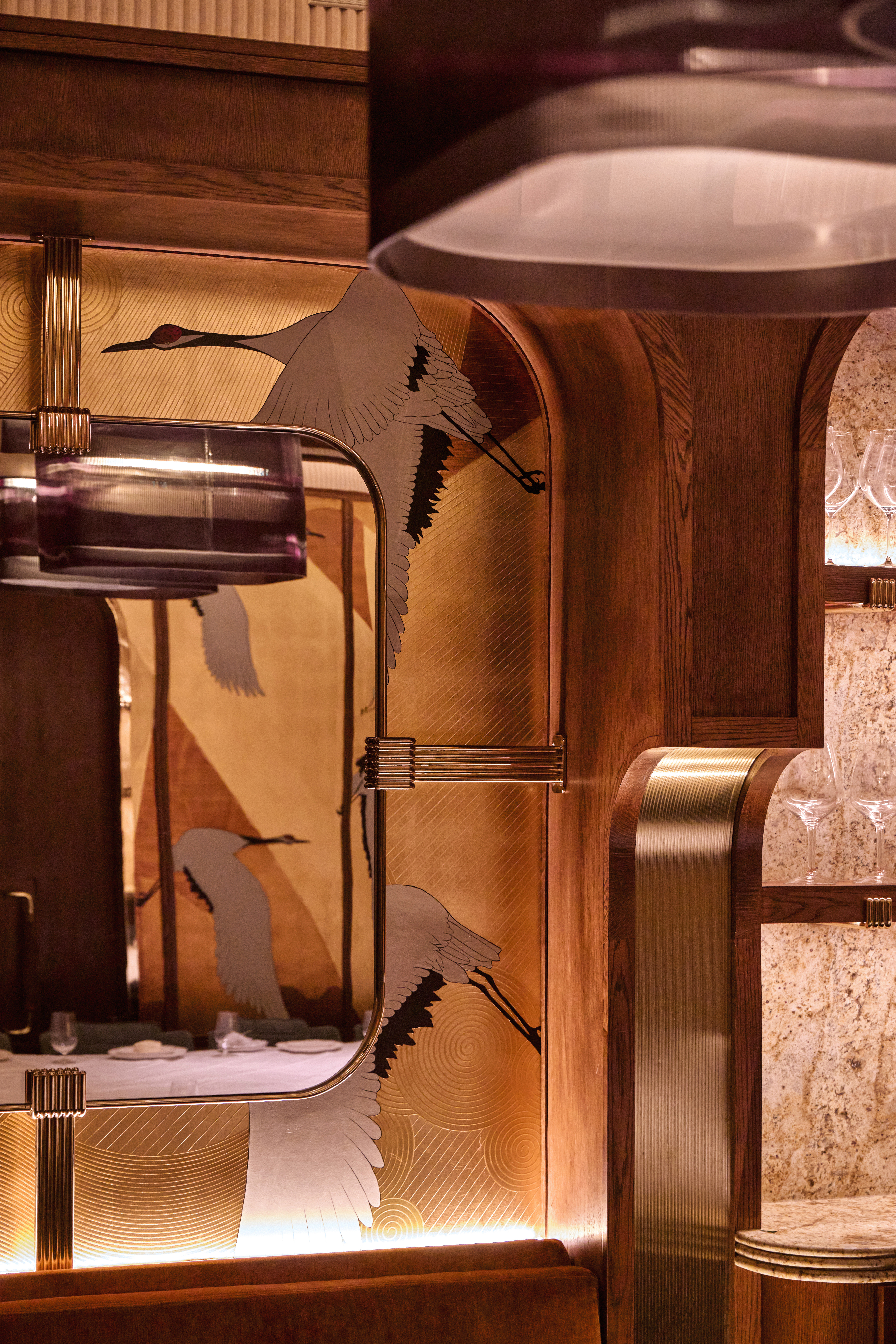
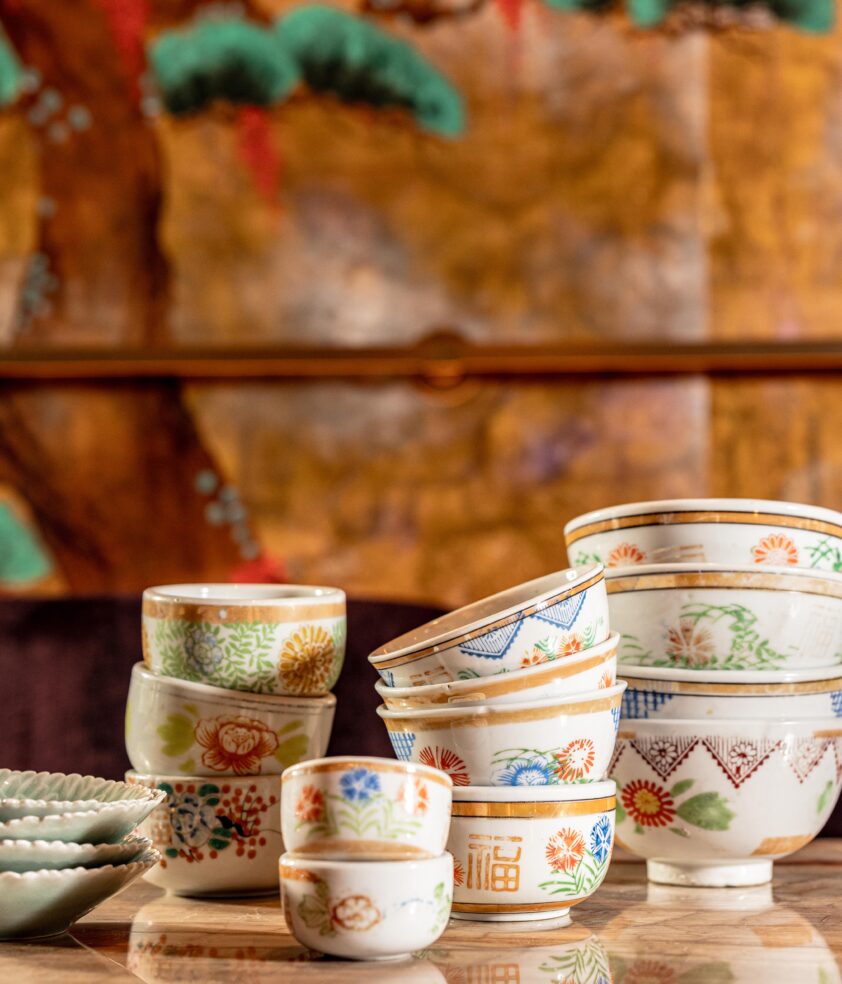
Ceramics
At Nuri, we cherish the history embedded in our unique collection of bowls, over a century old, believed to have graced the homes of the affluent during Korea's Japanese colonial period. These artifacts remind us of a challenging era when, starting in 1910, Japan's colonial rule sought to erase Korean identity and autonomy. The oppressive governance stripped Koreans of rights, lands, and economic status, imposing harsh policies and controls. Our bowls symbolize resilience and the indomitable spirit of a nation that has endured and flourished against the odds, honoring a rich cultural heritage that survived adversity.
Nuri Newsletter
Sign up to receive exclusive updates and events.

